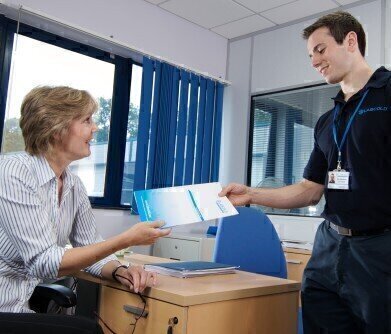Laboratory products
Shouldn’t your temperature calibration supplier have ISO 17025:2005 accreditation as a UKAS Temperature Calibration Laboratory?
Mar 15 2017
Temperature Calibration of refrigerators and freezers is necessary if you want to maintain confidence in your process and results. After all, they are storing your samples, reagents, biologicals or pharmaceuticals and temperature can affect their structure and efficacy. If you are an ISO15189:2012 laboratory, fridge and freezer temperature accuracy is probably critical, but why do you need to use a UKAS calibration laboratory? Surely anyone doing calibration will have their temperature probes calibrated by a UKAS laboratory so the service will be just as good?
All we can say is it might be. However, there are crucial differences between a calibration provider who, like Labcold is a fully UKAS accredited calibration laboratory and one who uses UKAS traceable instruments.
The major differences are that you are certain that a UKAS accredited company complies with both national and international standards for calibration competency. A company with UKAS ‘traceable’ instruments may also comply with these standards, but you have no proof. In addition, you don’t know whether their processes meet these standards either as they haven’t been inspected by a third party, neither do you know whether they are calibrating correctly because again no independent person has tested the competence of the people carrying out the calibration. With a UKAS accredited temperature laboratory you have no such doubts as this will have been observed by a third party assessor and unless demonstrably competent, the laboratory will lose it’s accreditation. You can also be confident that the uncertainty of measurement is accurate because that too will have been assessed. Again, not by the company concerned, but by an independent assessor who will fail a company if they don’t meet the rigorous international standards.
As must be obvious, a company that claims to be ‘UKAS traceable’ or ‘traceable to UKAS’ can only be referring to the calibration of the instruments used to perform the calibration, not the person nor the process. This is important because UKAS accreditation is not just a measure of accuracy, although it does provide this reassurance, it is also a process of accountability, training and traceability that becomes part of a company’s culture. So, at Labcold, we have a whole team not just carrying out calibrations here and at customers premises, but managing and maintaining the process and documentation. They are also delivering training to everyone involved to ensure that every calibration we carry out is performed according to this process.
Therefore, in answer to the question ‘Shouldn’t your temperature calibration supplier have ISO 17025:2005 accreditation as a UKAS Temperature Calibration Laboratory?’ the answer is almost certainly yes.
Only by using a fully accredited UKAS temperature calibration laboratory can you be sure that the process used meets international standards for calibration and that the person carrying out the calibration has been trained to complete the task to those exacting standards. You also have the added confidence that absolutely everything is traceable and documented, including the training, and not just the instruments used to perform the calibration. You can also be certain that the uncertainty of measurement is as described by the company’s UKAS certification, vital if you need to tell your client or regulator what temperature parameters your fridge or freezer is running at.
There is, therefore, a massive difference between a company that is a UKAS calibration laboratory and one that merely uses instruments that are calibrated by a UKAS laboratory. This may be reflected in the price of the calibration, but if you’ve got quality systems in place doesn’t it make sense to use a company like Labcold that too has robust quality systems, recognised by a third party and backed up by it’s UKAS calibration laboratory No 8898 status?
Digital Edition
Lab Asia 32.2 April
April 2025
Chromatography Articles - Effects of small deviations in flow rate on GPC/SEC results Mass Spectrometry & Spectroscopy Articles - Waiting for the present to catch up to the future: A bette...
View all digital editions
Events
Apr 09 2025 Tokyo, Japan
Apr 22 2025 Hammamet, Tunisia
Apr 22 2025 Kintex, South Korea
Analytica Anacon India & IndiaLabExpo
Apr 23 2025 Mumbai, India
Apr 23 2025 Moscow, Russia



















